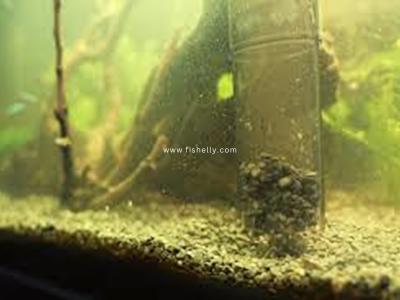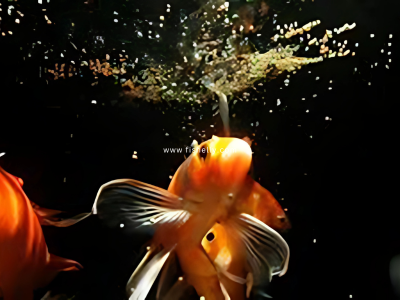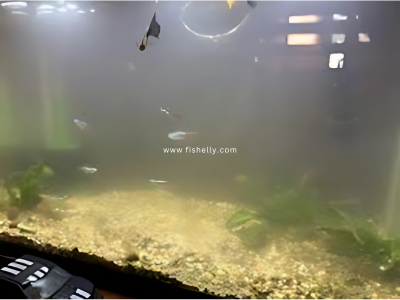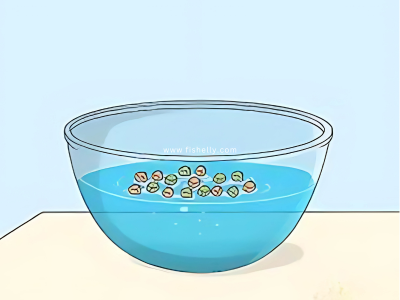Why Your Fish is a Picky Eater: How to Fix It
Wondering why your fish won’t eat? Learn the top reasons behind picky eating in aquarium fish and get actionable tips to improve their appetite and health.
Table of Contents
- Understanding Fish Feeding Behavior
- Common Reasons Fish Become Picky Eaters
- How to Fix It: Tips to Get Your Fish Eating Again
- When to Seek Help
- Faq
- Conclusion
Feeding time is supposed to be one of the most enjoyable parts of owning fish. But what happens when your fish turns its nose—or rather, its gills—up at the food you offer? A picky eater in your aquarium can be frustrating and concerning. Don't worry—there’s usually a reason behind it, and even better, there’s usually a solution. Let’s dive into why your fish might be fussy and what you can do about it.
Understanding Fish Feeding Behavior
Before labeling your fish as "picky," it’s important to understand that fish have natural feeding instincts shaped by their species, environment, and past experiences. A wild-caught fish may behave differently from a tank-bred one. Some fish are grazers, others are hunters. Their feeding schedule, preferred food type, and behavior can all vary dramatically.
Common Reasons Fish Become Picky Eaters
1. New Environment Stress
When you add a fish to a different tank, it may take time to adapt. Relocation stress, new water conditions, or strange tank mates can cause loss of appetite. During this time, it is common for them not to eat for a few days.

2. Wrong Type of Food
All fish do not eat flakes or pellets. Herbivores require greens such as algae wafers or blanched vegetables, whereas carnivores eat live or frozen food such as brine shrimp, daphnia, or bloodworms. Presenting the incorrect diet will result in rejection.

3. Poor Water Quality
Ammonia spikes, low oxygen, or improper pH levels can make the fish ill and uninterested in food. Even if the water appears clean, it may not be healthy. A test kit will assist you in determining unseen problems.

4. Overfeeding or Feeding at the Wrong Time
Overfeeding your fish too frequently spoils their appetite. Most fish are well on a once-or-twice-daily regimen. Furthermore, feeding them when they're not active (e.g., immediately after lights on/off) leads to waste.

5. Spoiled or Low-Quality Food
Fish have sensitive olfactory senses and can smell spoiled or rancid food. Stale flakes or frozen food that's stored incorrectly loses nutritional value and taste, and they become unappealing.

6. Illness or Parasites
If your fish is lethargic, hiding, or showing physical signs such as bloating or spots, fussy eating can be a sign of illness. In this event, it is advisable to go see a vet or aquatic specialist.

How to Fix It: Tips to Get Your Fish Eating Again
Be Patient and Observant
Watch your fish's behavior and feeding reaction. If they're nosing around the food but not taking bites, switch to a different type or brand. Be patient—particularly with shy or newly added species.
Provide Variety
Fish, like humans, like variety. Alternate between flakes, pellets, live/frozen food, and even vegetables. For herbivores, blanched spinach, peas, or zucchini may work. For omnivores, a protein treat once or twice a week can help spark appetite.
Soak Dry Foods in Tank Water
Soaking dry food in tank water softens it, releases its aroma, and makes it more digestible. This trick will tempt even the most finicky fish.

Feed Small Portions
Instead of feeding your fish too much, feed small portions and watch their response. If they accept it, you can always provide a bit more.

Maintain a Feeding Schedule
Attempt to feed your fish at the same time every day. Fish tend to learn habits and look forward to meals, and this can enhance appetite.

Enhance Tank Conditions
Regularly check your water parameters. A clean environment promotes healthy eating. Include plants, shelters, and eliminate stressors such as aggressive tank mates or loud environments.

When to Seek Help
If your fish always won't eat for over a week, or if it's losing weight, swimming erratically, or demonstrating disease symptoms, call a fish veterinarian or aquatic specialist. Early treatment can make a huge difference.
Faq
1. Why won’t my fish eat after moving it to a new tank?
It’s stressed from the move. Give it a few days to settle.
2. Do all fish eat flakes or pellets?
No. Some need live, frozen, or plant-based foods.
3. What if my fish spits the food out?
It likely doesn’t like it—try a different type or texture.
4. Can low oxygen make fish stop eating?
Yes. Poor oxygen or water quality affects their appetite.
5. How often should I feed my fish?
Once or twice a day in small amounts.
6. Is it okay if my fish skips a meal?
Yes, occasionally skipping meals is normal.
7. How do I know if food has gone bad?
If it smells off or looks discolored, toss it.
8. Can spoiled food harm my fish?
Yes, it can make them sick or uninterested in eating.
9. Should I feed fish at night?
Only if they are nocturnal. Most eat during the day.
10. My fish hides and doesn’t eat—why?
Could be shy, stressed, or unwell. Watch closely.
11. What veggies can I feed herbivore fish?
Try blanched spinach, zucchini, or peas.
12. How long can a fish go without eating?
Most healthy fish can go a few days; some up to a week.
13. How can I make food more tempting?
Soak it in tank water or try live/frozen options.
14. Why does my fish eat only certain foods?
They develop preferences or might need specific nutrients.
15. When should I get help?
If your fish hasn’t eaten in 5–7 days or shows signs of illness.
Conclusion
Picky eating is more prevalent in fish than you may realize—and it's nearly always correctable. With a little observation, experimentation, and TLC, you can get your fish back to loving mealtime again. Keep in mind: happy, healthy fish begin with a thoughtful keeper.
Got questions or tips? Drop them in the comments!






